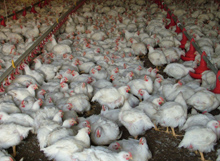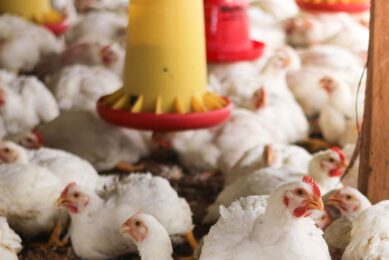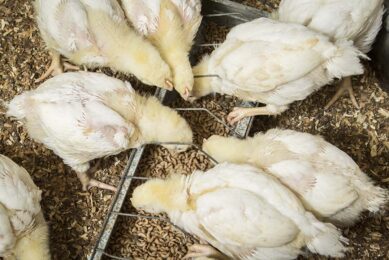US Ethanol programme threat to broiler production

The US broiler industry is under intense economic pressure from the rising cost of feedgrains, much of which is caused by the federal government’s ethanol programme, according to industry leader Mike Welch.
Proposed federal rules on the production and marketing of livestock and poultry have also put the industry under a cloud, he said. “Broiler companies have tried to weather the storm of very high, very volatile corn prices,” former National Chicken Council chairman Mike Welch told the Senate Committee on Agriculture, Nutrition and Forestry. Welch is president and CEO of Harrison Poultry in Bethlehem, Georgia.
“But now companies can no longer withstand the storm,” he said. “They are trimming their production plans, which means growers will receive fewer chicks to grow to market-ready broilers, and processing plant work shifts are being reduced or even eliminated.”
With less work time, more and more workers are being laid off, Welch said. He noted that one company had to eliminate a second shift, and 300 jobs with it, while another company announced recently that it is cutting over 200 jobs due to the cost of feed. A third company was forced to file for bankruptcy and sell its assets to another firm, he said. The pressures are having repercussions on some companies, he said.
“Banks and other lending institutions are telling troubled companies ‘enough is enough,’ meaning sell your assets and repay your outstanding debt,” according to Welch.
The crisis has come about largely because of the federal government’s Renewable Fuels Standard (RFS), also known as the ethanol mandate, in which 40 percent of corn production this year will be diverted from traditional uses, such as livestock and poultry feed, into the production of ethanol to satisfy the federal requirement that 12.6 billion gallons of ethanol must be blended into gasoline for motor vehicles.
“The RFS is essentially an immovable object even when there is an irresistible force,” Welch said. “There is a shortfall in corn supplies but the RFS continues to be immune to the crisis in poultry and livestock”. He called for a realistic trigger mechanism to adjust the RFS to market reality. The cost of corn has tripled since 2006 when the current RFS began seriously to influence the market.
Welch warned of the negative impact of the rule proposed by the U.S. Department of Agriculture’s Grain Inspection, Packers & Stockyards Administration (GIPSA) that would place significant new restrictions on production and marketing of poultry and livestock. “These new rules would devastate our industry by imposing over one billion dollars in cost over the first five years,” Welch said. “The proposed rule should be withdrawn”, he stated.
The National Chicken Council is the trade association based in Washington for the companies that raise, process and market chickens and chicken products. The council’s membership includes companies that account for 95 percent of U.S. chicken production.
Source: National Chicken Council
Join 31,000+ subscribers
Subscribe to our newsletter to stay updated about all the need-to-know content in the poultry sector, three times a week. Beheer
Beheer








 WP Admin
WP Admin  Bewerk bericht
Bewerk bericht